In this video, I explain the limited circumstances in which you can “self-sponsor” your UK visa.
The first topic is whether you can assign a Certificate of Sponsorship to yourself. In all cases except one, the answer is ‘no’, and if you did so, when prohibited from doing so, then your licence would be revoked:

Two of the Key Personnel are:
Leaving aside the exception, you, as the visa applicant outside of the UK, are not going to be able to fulfil these two roles.
Also, if you are looking to incorporate the UK entity that is to sponsor you, its going to be challenging to open up a UK bank account for that company. And the supporting documents that you need for the sponsor licence application, include:
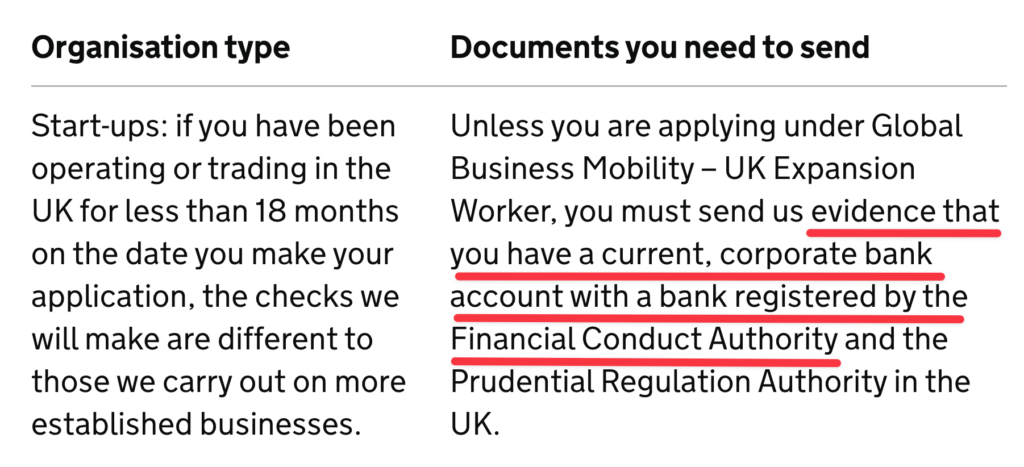
There are mixed results for companies applying for a sponsor licence using one of the challenger banks like Revolut. Generally you are going to need a traditional High Street bank, and they won’t allow you to open a corporate bank account unless you have UK residency.
So for these reasons, you could not appoint yourself to any of the Key Personnel roles as the overseas intended Skilled Worker applicant, because you would not be based in the UK at the time of the sponsor licence application.
There is a another, independent, reason why you could not be appointed specifically as the Level 1 User. That’s because the Level 1 User must be British, or settled, which you are not if you are looking to be sponsored on a Skilled Worker visa, in this example from overseas. This is the definition of settled worker:
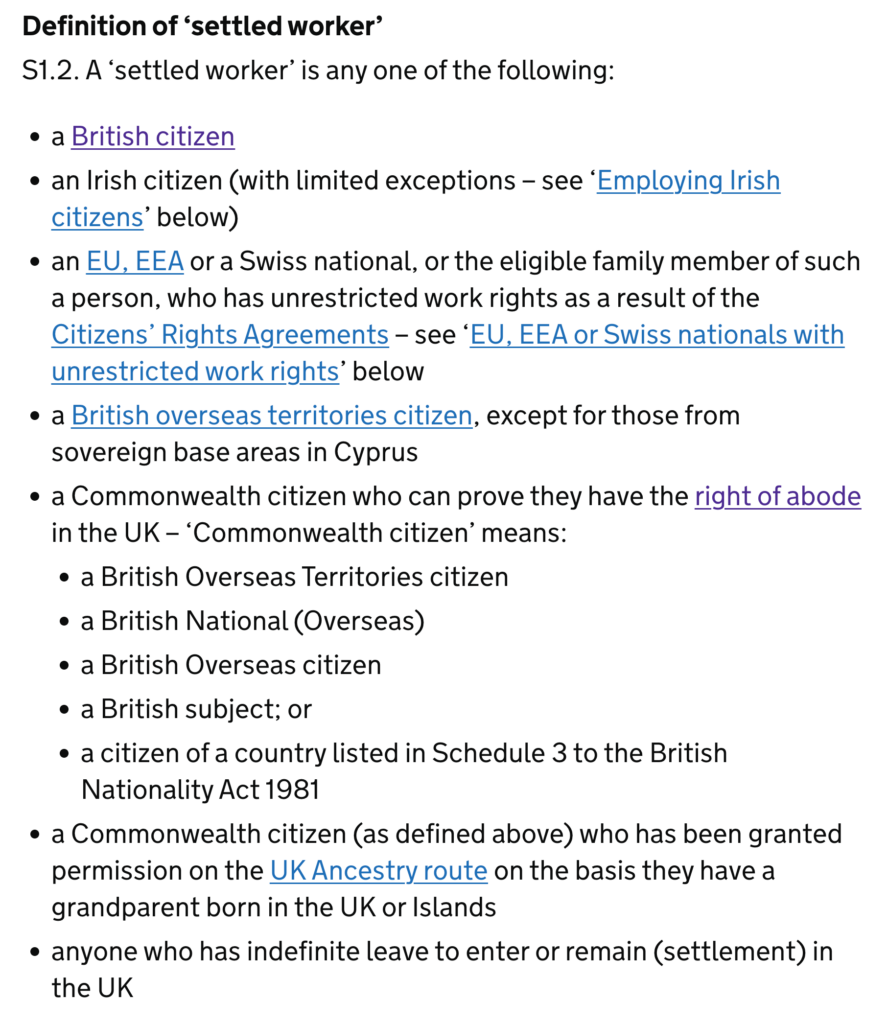
However, start-up visa holders, or innovator visa holders, or global talent visa holders, can be appointed as Level 1 Users, notwithstanding that they are not yet settled, or British.
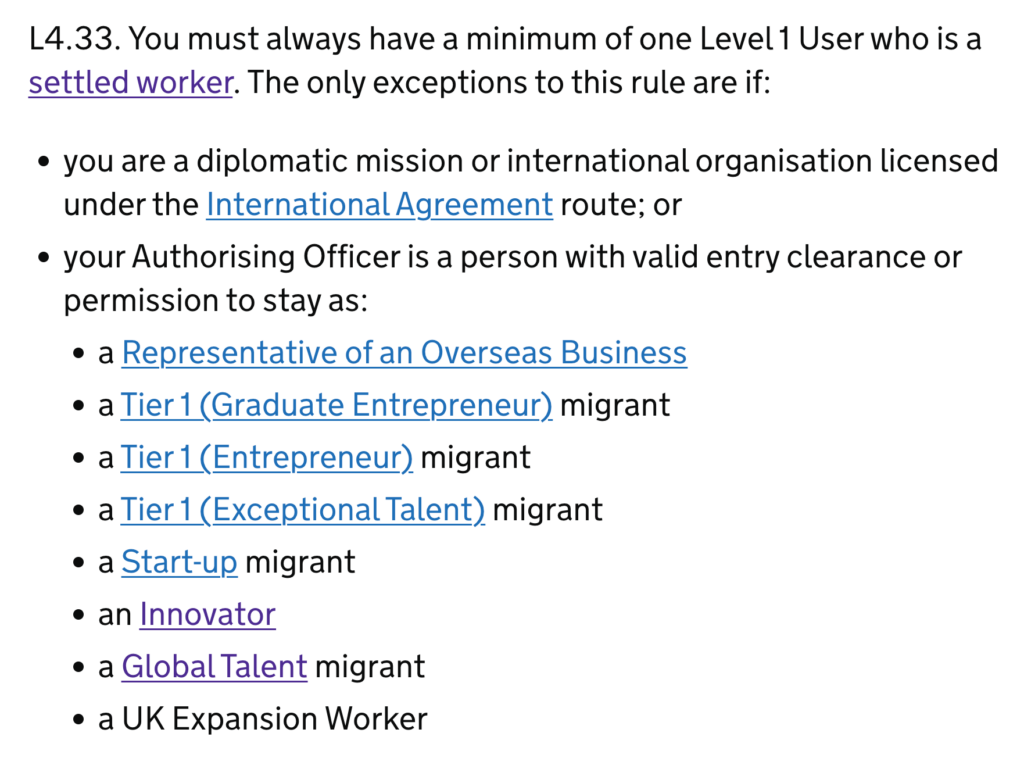
So what would happen if you were, for example, a start-up, innovator or global talent visa holder, and you applied for a sponsor licence, and appointed yourself as BOTH Authorising Officer (this would be possible, as you would be based in the UK) AND as Level 1 User (because, as I say, that is possible under this exception), AND, let’s say, you then assigned a Certificate of Sponsorship to yourself. Well, that is prohibited, and the sponsor licence would just be revoked. The rules list the “circumstances in which we will revoke your licence”:


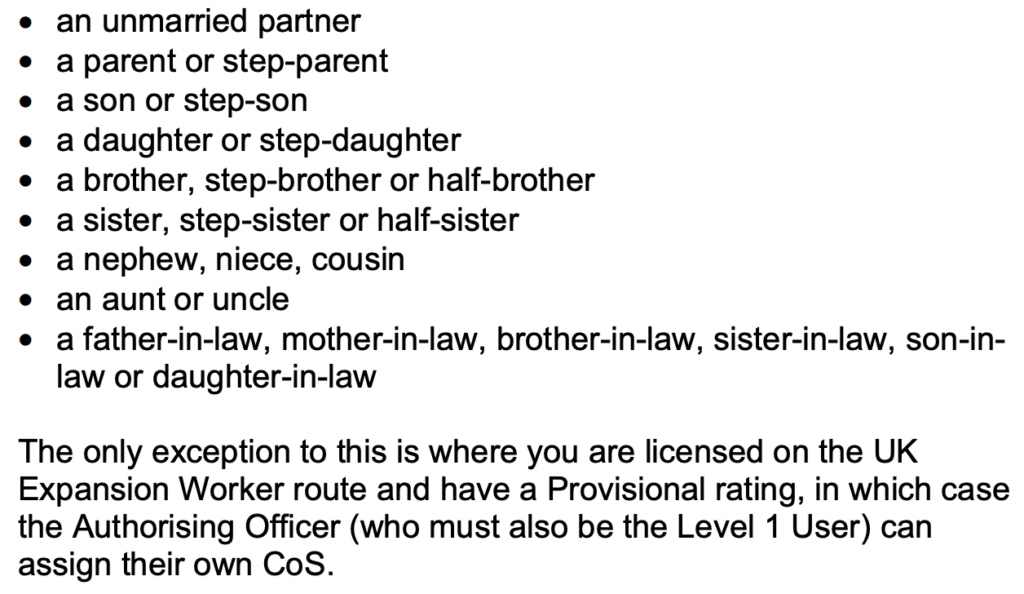
Again, there is an exception to this, under the Expansion Worker route, which I will come to shortly. And in that case, you CAN assign the Certificate of Sponsorship to yourself.
But before we come to that, there is another related question, which is: “Can you appoint a different Authorising Officer and Level 1 User, and have them assign the certificate to you?” So, in other words, this is the situation where you are looking to apply for a Skilled Worker visa. You are not settled or British. You want to incorporate the UK company, appoint a different Authorising Officer and Level 1 User, and have them assign the certificate to you. Can you do this? Well, it depends on whether the job is “genuine”. But what does this mean? Well the Home Office will deem a job to be NOT genuine if it has been created mainly so that you can apply for entry clearance or permission to stay. The rules say that a licence will be revoked where:
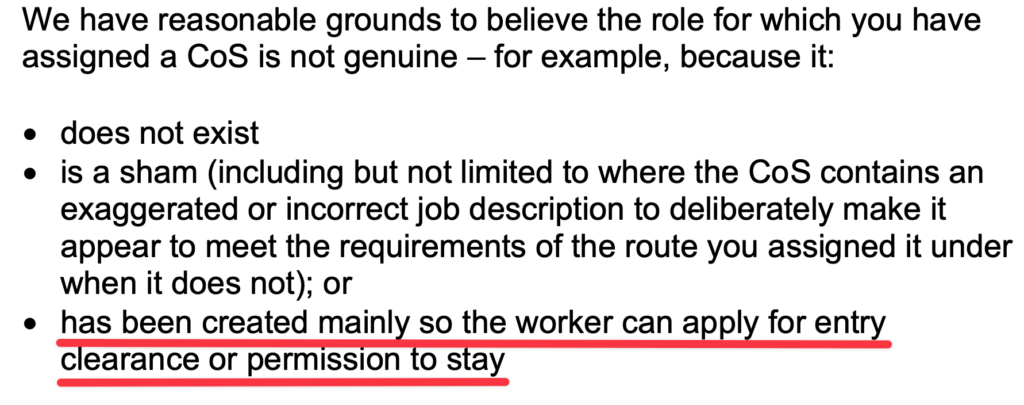
Where the job had been created just for you to apply, then it would be deemed to be NOT genuine. Another way of putting this is that the job must exist, independently of your visa application, or visa considerations. Alternatively put, would this job exist even if you were not applying for the visa? Was the job advertised, for example?
Prior to December 2020, you had to advertise for skilled worker roles in a prescribed way (the so-called ‘resident labour market test’).
That was removed as a requirement, BUT whether you have advertised or not is still a relevant consideration when assessing whether the role is genuine.
In other words, advertising may constitute evidence that there is a job, independently of your intention to make a visa application.
Another factor is: is this the ONLY job in the organisation? Is anyone else being sponsored? And what’s the broader business plan? In my sponsor licence applications, I include the business plan in the suite of compliance materials that my client has ready for any audit.
Another factor is the percentage of shares that you own in the UK company that’s sponsoring you.
Before December 2020, if you owned more than 10% of the shares in the sponsoring entity, then you could NOT get the visa UNLESS you earned over £159,600 per year.
So this was the pre-December 2020 rule:

Parliament removed this rule on this basis:
“Genuine vacancy requirement: resident labour market test requirement abolished in favour of a requirement to demonstrate a ‘genuine’ vacancy”
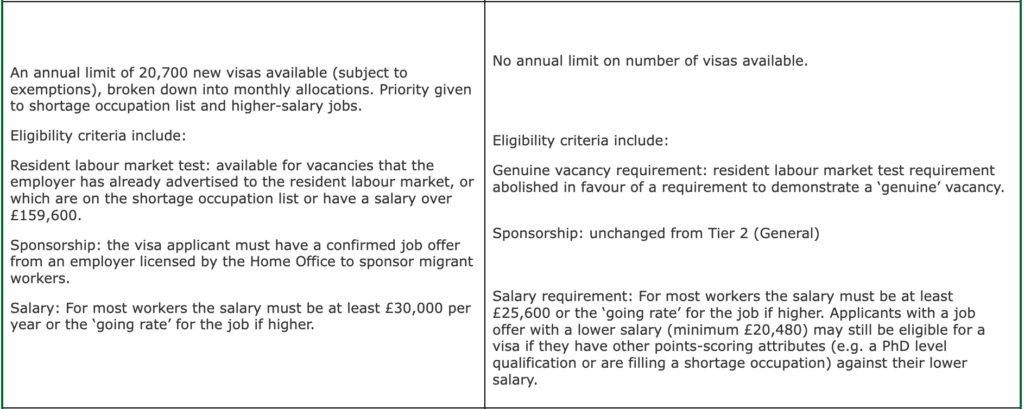
So in removing this technical restriction, Parliament was replacing the narrow, technical rules, with a broader rule that the job must be genuine.
The same “genuineness” test is applied at the visa application stage (so not just when you apply for the sponsor licence). In other words, the rules say:

So: is self-sponsorship on a Skilled Worker visa “genuine”. Well, the answer is it depends. Generally, the greater the ownership of shares that the main applicant has, the greater the need to demonstrate the business case and that it is genuine, and the greater the scrutiny of the factors I’ve just explained.
So what about the very limited exception in which you can self-sponsor in a more direct sense, by literally appointing yourself as Authorising Officer and Level 1 User, and assigning the certificate of sponsorship to yourself. Well, this is now possible, as an exception, under the Expansion Worker visa, within the Global Mobility pathway.
A UK Expansion Worker visa allows you to come to the UK to set up a branch of an overseas business that has not started trading in the UK yet. You must already work for the overseas business as either a senior manager or specialist employee.
The person applying for the UK Expansion Worker visa can be appointed as Authorising Officer:

The person applying for the UK Expansion Worker visa can also be appointed as Level 1 User:
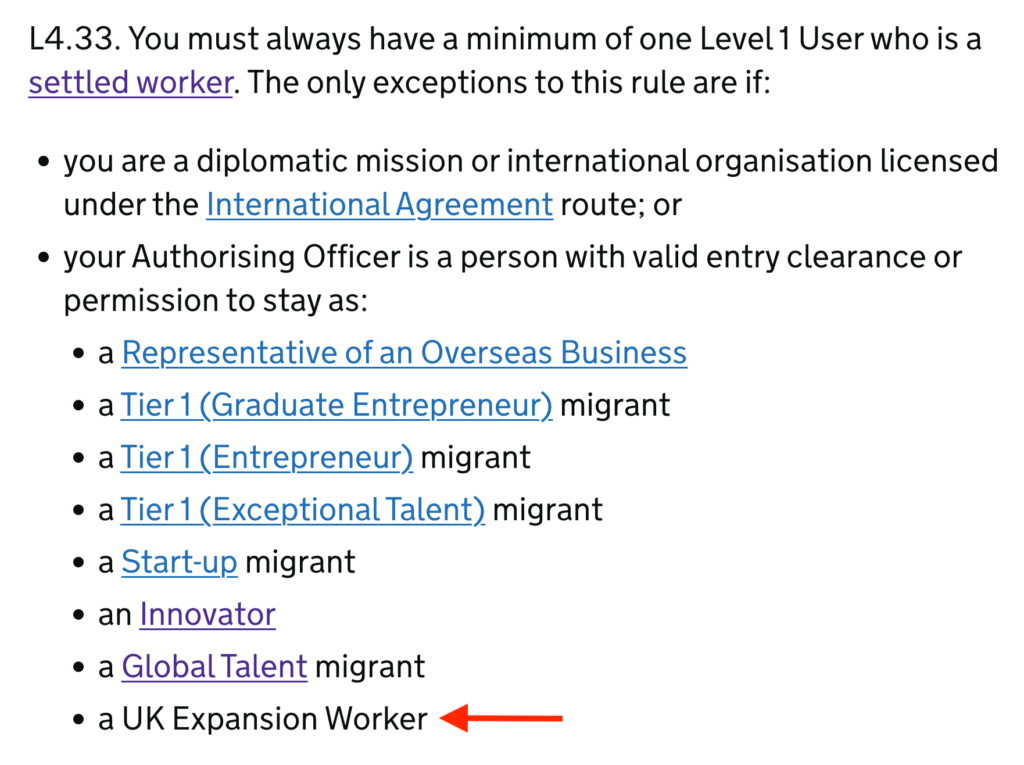
Also, you can then assign a Certificate of Sponsorship to yourself.
The guidance states that “that person must assign a Certificate of Sponsorship (Cos) to themselves” in order to make an application for entry clearance.


